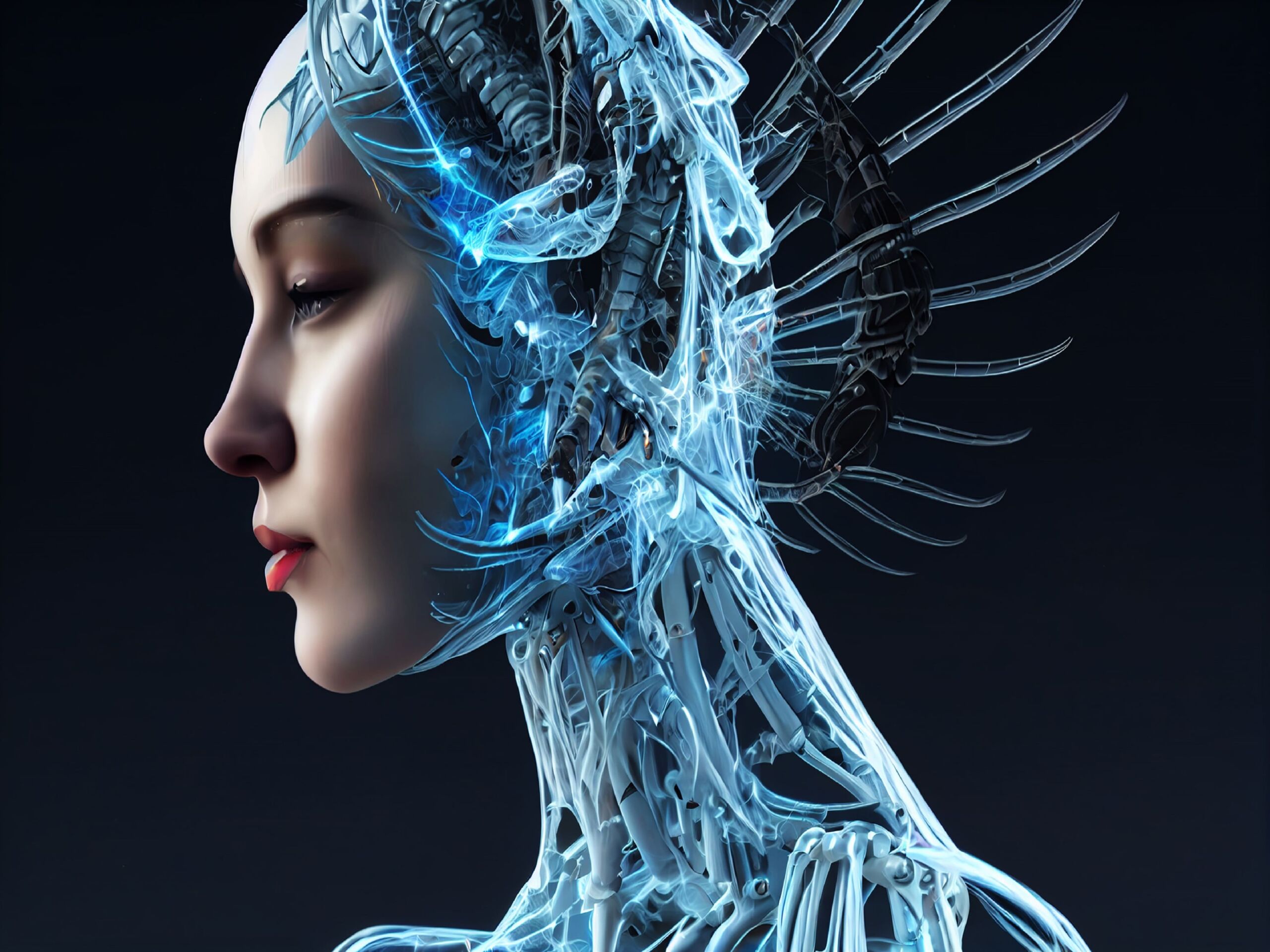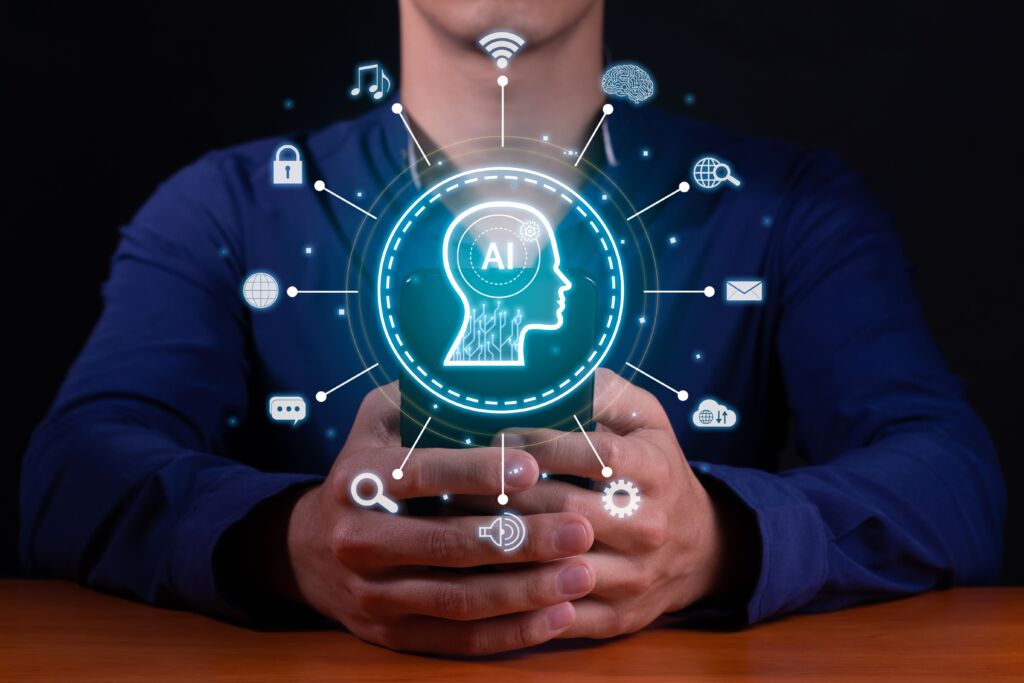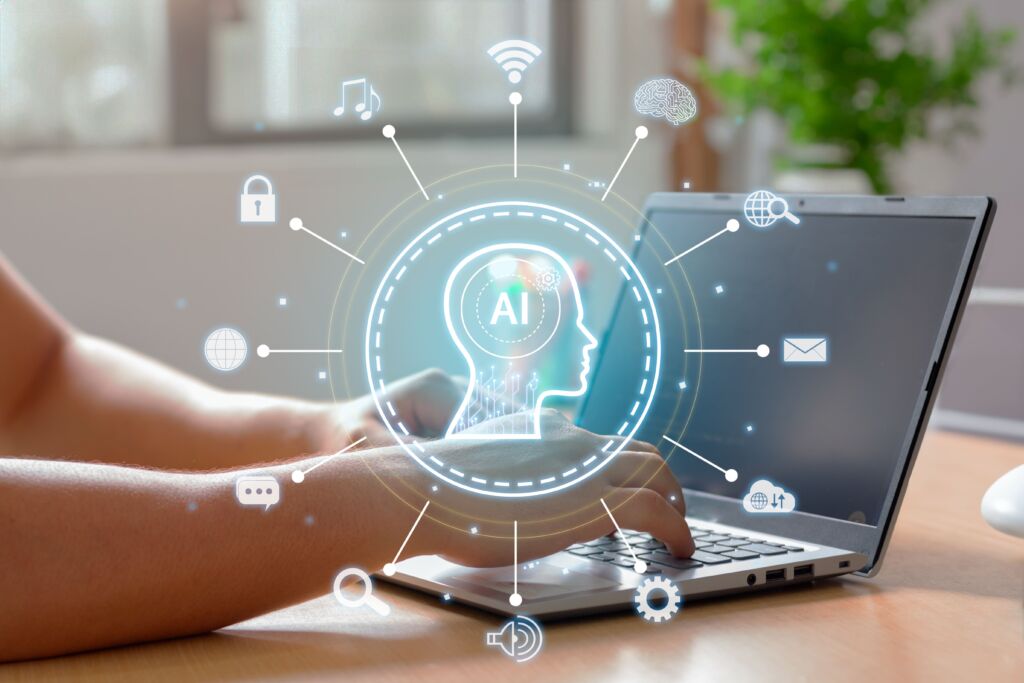

July 24, 2022
Artificial Intelligence (AI) has emerged as one of the most captivating and extensively discussed technologies in the 21st century. Its exponential growth and promise to transform multiple industries have ignited global curiosity.
In the following article, we will delve deep into the factors that have led to AI’s immense hype and examine its profound effects on society.
Artificial Intelligence is a groundbreaking technology that tries to make machines think and learn like humans. It’s an exciting field of computer science that enables machines to do tasks requiring human-like intelligence. These tasks include:
AI is all about creating smart systems!
At the heart of AI lies the aspiration to develop machines that can mimic human cognitive processes. This involves designing algorithms and models that enable computers to understand, interpret, and respond to complex data and situations, like human thought. AI systems keep improving at handling demanding tasks. It gives valuable insights using advanced algorithms and deep learning methods.

Integrating artificial intelligence system in the healthcare industry has ushered in a new era of advanced medical practices and patient care. AI’s transformative impact on healthcare stems from its ability to augment human capabilities and unprecedentedly process vast medical data.
One of the most significant contributions of AI in healthcare is its role in enhancing diagnosis accuracy. Machine learning algorithms, a subset of AI, can analyze medical images with remarkable precision, such as X-rays, MRIs, and CT scans.
AI-powered diagnostic tools detect hidden anomalies and patterns, aiding early disease identification for better treatment.
The financial sector has experienced a revolutionary transformation by integrating AI into its operations. AI-powered algorithms have revolutionized various aspects of finance, offering advanced tools and solutions that enhance efficiency, mitigate risks, and improve decision-making processes.
One of the key areas where AI has made a significant impact is fraud detection. Financial institutions face constant threats from fraudulent activities, and traditional fraud detection methods often struggle to keep up with fraudsters’ evolving tactics.
With its ability to analyze massive amounts of data and detect subtle patterns, AI provides a robust defense against fraudulent transactions. AI-powered systems can identify anomalies and suspicious activities in real time, enabling proactive measures to prevent financial losses and protect customers.
Artificial Intelligence has revolutionized the transportation sector. It introduced groundbreaking innovations that promise to transform how we move and commute. Among these innovations, self-driving cars and intelligent traffic management systems are prime examples of AI’s potential to reshape transportation for the better.
Self-driving or autonomous vehicles represent a pinnacle achievement in AI-driven transportation. These vehicles are equipped with advanced sensors, cameras, and AI-powered algorithms. It enables them to navigate and interact with the environment without human intervention.
Another crucial aspect where AI shines in transportation is intelligent traffic management. AI-powered traffic management systems utilize real-time data from various sources, such as GPS, cameras, and sensors, to analyze traffic patterns and anticipate congestion points.
AI is also pushing the boundaries of content creation in the entertainment sphere. Through generative AI models, content creators can automate certain aspects of content production, such as generating music, art, and even scripts for movies and TV shows. These AI-generated creations offer a wealth of creative possibilities and provide a fresh perspective on storytelling and artistic expression.
Furthermore, AI-driven virtual reality (VR) experiences have opened up a new realm of immersive entertainment. AI algorithms enhance VR environments by creating dynamic and interactive elements that respond to real-time user interactions. This fusion of AI and VR offers users captivating experiences, from interactive storytelling to lifelike simulations, transporting them to virtual worlds that blur the lines between fiction and reality.
Personalization is a key hallmark of AI in entertainment, extending beyond content recommendations. AI-powered virtual assistants, chatbots, and interactive characters allow users to engage with content in unique and personalized ways.

AI-driven automation streamlines repetitive tasks, freeing up human resources to focus on more strategic and creative endeavors.
AI excels at analyzing large datasets and identifying patterns that humans might overlook. This capability has proven invaluable in marketing, where AI can effectively target audiences.
AI-powered recommendation engines personalize user experiences in various applications, from e-commerce to streaming platforms, improving customer satisfaction and engagement.
The fear of AI replacing human jobs has raised concerns about unemployment rates. However, history has shown that while specific jobs might be automated, new roles will emerge to support AI development and implementation.
The advent of AI and automation has ignited concerns about the potential displacement of human jobs. The fear of widespread unemployment due to AI replacing human workers has become a subject of considerable debate and analysis.
While AI and automation can automate specific tasks traditionally performed by humans and economic patterns, this technological shift will likely lead to a transformation of the job market rather than mass unemployment.
Upskilling refers to enhancing the skills and knowledge of existing workers to keep pace with technological advancements and industry trends. It involves providing employees with training and education that aligns with the evolving needs of their respective fields.
Upskilling empowers workers to stay updated on the latest tools, techniques, and best practices, enabling them to adapt to new job requirements and contribute more effectively to their organizations.
Reskilling, on the other hand, involves equipping workers with entirely new skills to transition into different roles or industries. Reskilling is crucial when certain job roles become obsolete due to automation or technological advancements.
By providing workers with opportunities to acquire new skills, organizations can retain valuable talent and facilitate smooth career transitions for their employees.
Contrary to popular portrayals in science fiction, superintelligent AI capable of taking over the world is far from reality. AI is designed with specific purposes and limitations. Superintelligence in AI means machines that are smarter than humans in every way. People worry that such superintelligent AI could become uncontrollable and outsmart us. But creating such advanced AI is a complicated and uncertain task that raises important scientific and ethical issues.
AI development relies on algorithms and models designed by humans. These algorithms can only work with the data they are trained on and the tasks they are programmed for. The AI’s smarts come from the data it learns from and can’t go beyond what it’s been taught.
While AI has made impressive strides in mimicking specific creative processes, it still needs to replicate the innate qualities of human imagination and emotional depth. In creative fields such as art and literature, human creators infuse their work with unique perspectives, experiences, and emotions that algorithms cannot replicate.
AI may assist and enhance creative endeavors, but it cannot replace the profound connection that human creativity establishes with audiences, making it an irreplaceable facet of artistic expression.
The hype surrounding artificial intelligence is a product of the remarkable technological advancements, promises of automation and efficiency, and the profound societal implications AI presents. But we must also be aware of AI’s challenges and problems. It’s rightly getting much attention because of its power to transform different industries. As AI progresses, we must use it responsibly and ethically.
As AI evolves, it’s important to strike a balance between being optimistic about its potential and being realistic about its limitations. We should use the AI hype to drive innovation, collaboration, and shared responsibility rather than just chasing an unrealistic dream. By doing so, we can use AI’s power for the greater good of humanity.